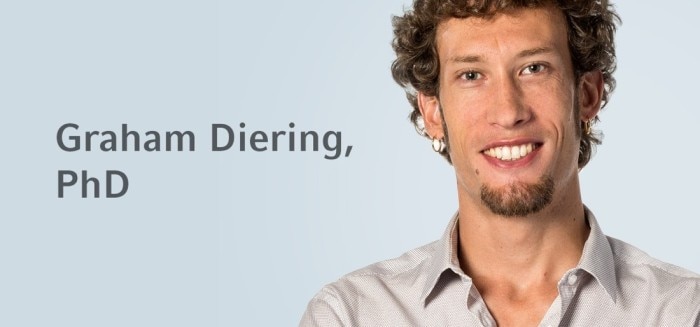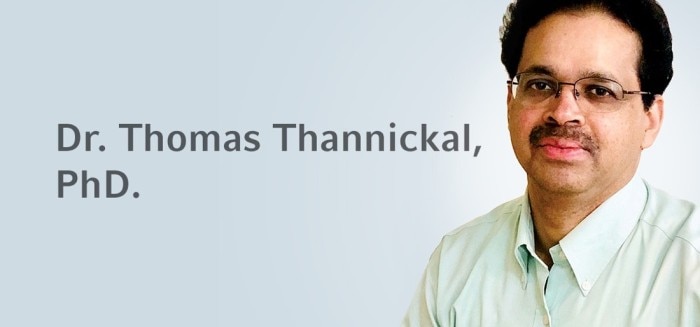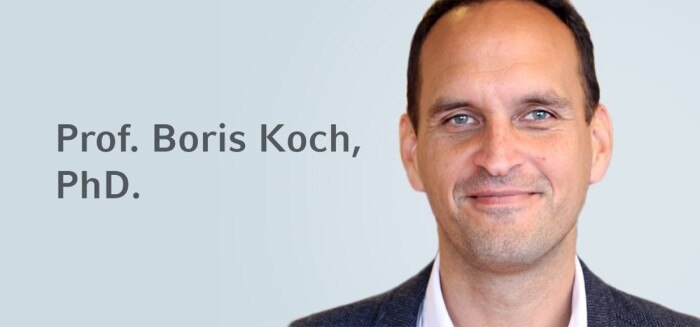MENU
DE | EUR
DE | EUR
-
- Benchtop Centrifuges
- Floor-Standing Centrifuges
- Refrigerated Centrifuges
- Microcentrifuges
- Multipurpose Centrifuges
- High-Speed Centrifuges
- Ultracentrifuges
- Concentrator
- High-Speed and Ultracentrifugation Consumables
- Accessories
- Tubes
- Plates
- Device Management Software
- Sample and Information Management
- IVD Products
No results found
Search Suggestions

What Counts in Science? Scientists in Depth
Lab Academy
- countonit
- Essay
In our article “Science counts – but what counts in science?” we discussed the collective interests of very different scientific disciplines. Therefore, we talked with leading researchers about their scientific aspirations and their confidence in scientific knowledge. Read more about the scientists and their work here.

Graham Diering, PhD, is Assistant Professor for biochemistry at the UNC Chapel Hill . His primary field of research is the molecular basis by which sleep supports cognitive function and brain health. He and his colleagues are applying their findings to understanding and treating diseases that include sleep disruption, such as autism spectrum and Alzheimer’s disease. “The reason why we sleep remains a scientific mystery, but it is clearly important – that behavior is conserved throughout evolution,” says Prof. Diering. “I am simply curious to learn more about this important and mysterious part of human and animal life.”
Read more
Read less

Dr. Thomas Thannickal, PhD, is Associate Research Professor at the Department of Psychiatry & Biobehavioral Sciences, School of Medicine of the University of California Los Angeles®. In 2000, he and his colleagues discovered that human narcolepsy patients suffered a degenerative loss of the neurotransmitter hypocretin. They also found inflammation in the hypocretin cell region, indicating that a neuronal degenerative process causes cell loss. These findings ended a 120 years long search for the cause of narcolepsy and have opened new paths for treating this debilitating disease. Prof. Thannickal’s work has led to clinical trials, testing whether treatment with hypocretin or hypocretin receptor agonists would reverse the symptoms of narcolepsy. Furthermore, this knowledge has had important implications for the understanding of other neurodegenerative diseases and the interactions of the brain and immune system. “It’s crucial to try to reverse the neuron loss. If a cure can be obtained for a neurodegenerative disease, it would have a major impact on human lives.”
Read more
Read less

Talia N. Lerner, PhD, is Assistant Professor of Physiology at the Feinberg School of Medicine, Northwestern University® in Chicago. Her main field of work is the decision-making of our brain: “The goal of my research is to dissect the synaptic and circuit mechanisms of habit formation. I want to know when habits are formed and how habits can be used adaptively to optimize an organism’s survival strategy. Imbalance in habit formation mechanisms are hypothesized to be involved in disorders – such as obsessive-compulsive disorders, autism and drug addiction. Thus, our discoveries about this basic brain process may inform treatments for patients with these disorders.” Prof. Lerner is fascinated by the way we learn about our environment every day: “I think, the role of habit in our daily lives is often underrated. And I am very curious to better understand how the brain incorporates habit both adaptively and maladaptively during disease.” She hopes to provide creative new windows into understanding psychiatric disease with her work.
Read more
Read less

Prof. Dr. Boris P. Koch is head of the Department of Ecological Chemistry at the Alfred Wegener Institute Helmholtz Centre for Polar and Marine Research, Bremerhaven (Germany). His main field of research is the bioproduction and the carbon cycle in the ocean, focusing on the rapidly changing polar regions, as plants in the ocean produce half the oxygen in our planet’s atmosphere: “Climate change has a huge impact on the environment of the marine ecosystem (temperature, pH values). This leads to changes in species composition and in the global carbon cycle.” To better understand those changes, Prof. Koch and his colleagues conduct their experiments on board research vessels like “ RV Polarstern ” on the high seas and in polar regions, collecting information on changes in species composition, on the interaction of organisms, and the conservation and degradation of organic material.
Read more
Read less
